 I can't remember how many years ago I met Julie, but I do remember immediately liking her and feeling a connection with her. She is one of the most vivacious, infectious and likeable people I have ever met. A pure joy to be around. If you haven't met her, I hope you have a chance to someday.
I can't remember how many years ago I met Julie, but I do remember immediately liking her and feeling a connection with her. She is one of the most vivacious, infectious and likeable people I have ever met. A pure joy to be around. If you haven't met her, I hope you have a chance to someday.Julie is the author of To Catch a Falling Star, Loved Like That, My Not So Fairy Tale Life and recently released Eyes Like Mine.
Here's a little about Julie . . .
Julie Wright was born in Salt Lake City Utah and is the author of four publisher novels. She currently resides in West Central Utah where she and her husband own a little country grocery store. They have three children who keep things busy at their house. She loves reading, writing, hiking, eating, taking long walks (and even longer baths), traveling, playing with her kids, and snuggling with her husband. But her favorite thing to do is watch her husband make dinner.
She loves speaking to youth groups, women's groups, and schools. For more information regarding that, please contact her at her website: www.juliewright.com
The backliner from her book:
A story of family that transcends time William has been missing for two days. And even though the rest of the wagon company has decided they must continue on to Zion, Constance Brown refuses to go any further until she finds her husband. All she can think about is the last time she saw him — he lovingly touched her face and then sang their baby girl to sleep. Will that memory be all Constance has to hold on to?
In a future time and place, Liz King is a teenager struggling with her identity in the modern world. The embarrassment she feels because of her parents’ divorce and her family’s new-found financial problems turns to bitterness.
Through an inexplicable twist of fate, Constanceand Liz are brought face to face. Liz recognizes Constance’s name from her mother’s endless lectures on their family history, and she also recognizes her eyes — they are exactly like her own. Were these distant relatives brought together in order to help each other?
Will Constance be able to return to her own life and find William, and will Liz be able to keep from telling Constance how her story ends? In this irresistible novel filled with gripping adventure and heartfelt emotion, two young women from drastically different times and settings learn that the challenges life holds for them are not so different after all.
Here's my interview with Julie:
M.B.: When did you first know you wanted to be an author?
Julie: In seventh grade when Mrs. Brown, my English teacher, told me I had a talent in writing. Since then, I wanted to be a writer in some format or another. I wanted to be an advertising agent, a lyricist, a poet, a screenwriter, a novelist. I just wanted to write and I wasn’t much concerned about how or what for. I was just glad to find out that I had talent somewhere!
M.B.: What was the pathway like for you to get your first book published?
Julie: I started writing my first book when I was fifteen and finished it when I was twenty-four. After I’d finished it, I was terrified to send it out to publishers. One day my husband handed me my coat and told me we were going to a bookstore. Happily, I went along, only to discover that he’d brought a pad of paper and a pencil. He found books similar to the one I’d written and copied the publishing information from the books down on his pad. We then went home and he submitted my book for me. I got three rejections and they crushed me. I thought maybe giving up would be a good idea at that point. Instead of giving up, I sent out one more submission as a “last ditch effort.” Several months later, a letter from that publisher offered publication. Once the book was accepted, it occurred to me I could write more than one book. I wrote my second book in six months and haven’t looked back.
M.B.: Were you ever discouraged along the way? If so, how did you deal with it?
Julie: Oh my, YES! I still have moments of discouragement, moments where I wish with all my heart I could get a memory block and forget I ever wanted to be a writer. Rejections hurt. Bad reviews hurt. Days when the story I’m working on suddenly feels pointless and lame hurt too. To deal with it, I simply moved on. I didn’t dwell long enough to cripple myself permanently. Moving on meant writing something new, submitting again, and again, and again. By continuing to move forward, it keeps me from obsessing and keeps me from becoming stagnant. Although sometimes, rocky road ice cream has been known to pull me from discouragement as well.
M.B.: What is your writing schedule like?
Julie: Schedule? Do people have schedules? I am not organized enough for such things. I write in short time increments during the day. Five minutes here . . . ten minutes there—the time adds up. There have been days where I’ve been able to write the entire day and there are days where I only get a word down. My goal is always to write at least one book a year. I’m hoping that 2010 will be productive and I’ll get three completed.
M.B.: Where do your ideas come from? How do you know the idea is
good enough to write a book about it?
Julie: In high school, I had a writing teacher who brought an old boot to school. She set it in front of the class and told us to write because, “There’s a story in there somewhere!” It was a good reminder that there is a story to be found everywhere you look as long as you’re actually looking. I’ve had ideas while vacuuming, driving, bathing, teaching at church, sitting in lectures, and oddly enough, while watching Discovery Channel. Sometimes I have to fiddle for a bit to be sure an idea is worth writing about. I’ve got several well begun manuscripts sitting on my hard drive. Sometimes it takes me sixty pages to realize the idea didn’t work. Sometimes I figure it out by the end of page one. But usually I just know. If the idea won’t let me go, if my brain keeps returning to it again and again, I know it’s worth writing about.
M.B.: What words of advice do you have for other writers who desire to
have their manuscripts become books in print?
Julie: Don’t give up. That doesn’t mean it’s easy. Giving up is easy; not giving up is hard. Some days you might have to make the decision to not give up several times. Write one book, work on getting it published, and then while you’re waiting for responses from publishing houses, get busy and write another book. Lots of great authors get rejected. The gatekeepers of agents and slush pile readers are human, after all. They have bad days and different tastes. A rejection really isn’t personal. It feels personal, but it isn’t. Of course it hurts. Cry yourself to sleep if you have to, eat your favorite comfort food, and get over yourself so you can get back to what’s important—the writing.
M.B.: What is your process of brainstorming a story? Do you just sit
down and write, waiting to see what happens next? Or do you outline
first?
Julie: I loosely outline. But mostly, I get a basic idea and usually start writing just to see where it takes me and also to make sure that if I have to abandon it for something else, I have enough written that I’ll be able to still remember the basic idea when I can get back to it.
M.B.: Do you ever experience a snag in a story, a form of writer's block? If so, how do you deal with it?
Julie: I’m sorry; I can’t answer this question. I have writer’s block ;) Just kidding. Yes, I’ve hit “blocks.” These are resolved in one of several ways: Read the whole manuscript (regardless of how far into I am) out loud to my husband so that he can help me figure out where to go next. Work on something else until I can resolve the snag. Clean cupboards while I think about the snag—mindless drone work is a great catalyst for creative thinking. Or lastly, abandon the project altogether and mine it later for tidbits that are worth keeping. I don’t recommend abandoning a project if you’ve never finished one before. You need to prove you can finish a story—especially when you’re starting out. Jumping ship is an absolute last resort.
M.B.: Do you need absolute quiet to write? Do you listen to music when
you are writing?
AUTHOR: I definitely don’t need absolute quiet and I sometimes listen to music. Most of my writing time is done while kids are home. Writing with kids around presents challenges, especially at my house where my child population doubles due to my children’s friends.
I experience no writing time that doesn’t include:
- “It’s my turn to play the x-box!”
- “Mo-om! She won’t give my book back!”
- “Mo-om, can we have second lunch today? I’m starving!” (This is usually from my youngest who seriously believes that everyone in the world gets two lunches every day.
- “Mo-om, I invited ten of my best friends to come and play, and we’re going to make popcorn, and throw it all over the living room . . . that’s okay, isn’t it?”
Do I write to music? In a way, I guess. I write to the beat and rhythm of my family.
M.B.: What kinds of inspiration do you use during your story creation periods?
Julie: Discovery Channel. I know it sounds weird, but the world around me fascinates me on a scientific level and always leads me into the thoughts of “what if?” Those thoughts are totally necessary during creation periods.
M.B.: Who has made the greatest difference for you as a writer?
Julie: Wow! That’s like asking me to pick which one of my kids is my favorite—an absolutely impossible task. So many authors have befriended me and made my whole career worthwhile, to mention one would necessitate mentioning all and that is quite the long list. If we go outside of authors, I’d have to say my husband has made the greatest difference. He puts up with my moods, and lets me read my novels out loud to him and helps me edit along the way. He never complains when I have writer things to attend. He’s the first to hug me when I get an acceptance, and the first to hold me when I get a rejection. He is my balance.
M.B.: Do you use a critique group during the writing process? Why or why not?
Julie: Nope. I live in the sticks and am too far away from people I’d want to share writing groups with. I’d love to join a writing group, but it’s just never worked out.
M.B.: Which of your books is your favorite, and why?
Julie: I just finished a book called Death Thieves. It’s my favorite, but it isn’t published yet. Of my published novels, I’d have to say that Eyes Like Mine is my favorite because it’s about the eternal nature of families. Even when a family feels broken, there is still a plan and a purpose to our lives and the families we share those lives with.
M.B.: Any final words you would like to share
Julie: That sounds ominous. Final words… Never give up on our dreams, recycle your cans, and be nice to people. J Oh yeah, and Michele Bell is amazing. I think everyone needs to know that.
M.B.: Where can our readers go to find your books and order them?
Julie: You can go to my website at www.juliewright.com or you can go to Deseret Book online: http://deseretbook.com/store/





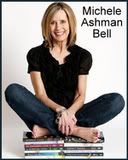
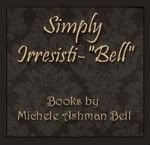





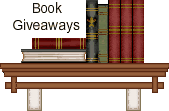


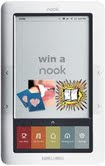













































-page-001.jpg)












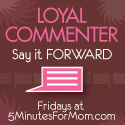
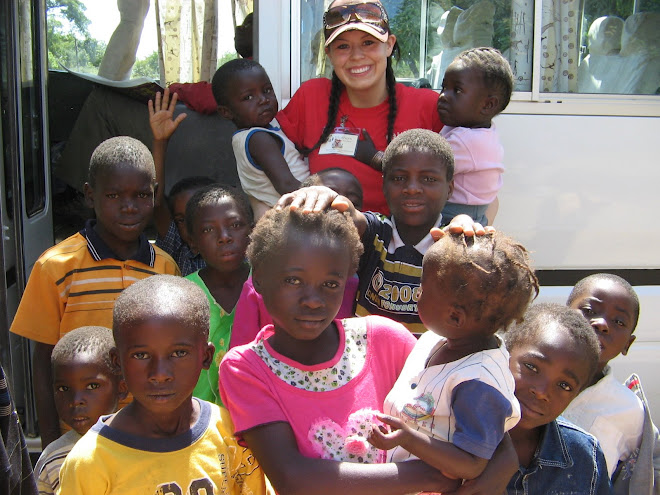
8 comments:
Hey! I love Julie too.
Julie sounds like so much fun! The interview was great! And her book sounds AMAZING!
Jenni
I love that Julie and her husband run a grocery store in a small town. I can see another book using this as the setting! Thanks for the interview. Looking forward to reading "Eyes Like Mine."
Great interview. I love the concept behind "Eyes Like Mine." What a great story! My husband is likewise very helpful and he is a writer, too. Because of all my surgeries, he has become the de facto housekeeper and cook. Can't last forever, but I'm writing 24/7, even if it's in bed. A helpful husband is a treasure, isn't it? And as usual, a stellar interview Michele!
Knuffels (hugs in Dutch to Julie and Michele)
Julie is awesome. What a fun interview, and that might be the coolest author picture I've ever seen!
Julie rocks!
Hey Michele, thanks for having me. I think you are fabulous!
That IS the coolest author picture. Way to rock it, Julie! Awesome interview, Michelle. (You always ask such great questions!)
I can totally vouch for the greatness that is Eyes Like Mine because I couldn't put that sucker down! It made me laugh, it made me cry, it made me jealous of how awesome Julie is. And "Death Theives"? How cool of a name is that?!
Post a Comment